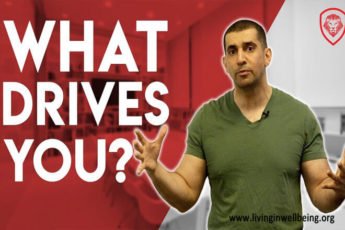
How to manage stress is the question of the day. Not sure when you are going to read this, but it is the winter of 2009, and folks everywhere in the country are suffering the impact of the worst recession since the Great Depression, and I see the stress in my counseling practice every day. I am located in one of the hardest hit manufacturing regions in the United States, where recessions last longer because of the strong manufacturing base.
In fact, I began to notice that my court ordered guys were struggling to pay in July of 2007, which preceded the 'official' beginning of the recession by about 6 months.
So my clients are looking at a true double bind, completing court ordered counseling or psychoeducation within a certain time period, but having no or little money to pay for it.
Many of my clients simply do jail time rather than complete the counseling since they cannot pay for it, which can put a tremendous strain on their family because one of the parents/breadwinners will be gone for awhile.
Other of my clients continue to use traditional job search tools, and anxiously await a response from job applications submitted by a temp agency.
Many of my clients do not know how to use a computer, and refuse to learn, thereby marginalizing themselves even further.
So how to manage stress?
Well, now that we have looked at some of the external circumstances of stress, at least in Rockford, Illinois, we need to look at the internal circumstances of stress.
I like to begin my work in this area by asking my clients what they would feel like if they won the lottery, and to man or woman, they have all immediately brightened and launched into a scenario about what they would do with the funds.
Being the Grinch that I am, somewhere in that story, I interrupt and bring them back to their counseling session by reminding them that their great good feelings are always preceded by a thought, just as their stress and anxiety are preceded by a thought.
Since stress is an inside job, and now folks are a little clearer on the feeling (stress for example) follow thoughts process, we can begin to develop some strategies for managing thinking.
After all, it is my brain, and I can think what I want when I want, and we also begin to develop some strategies for feeling good on demand.
That usually involves deep breathing exercises, and clients very quickly get that they can change their physiology from stress to relaxation by changing their breathing and thinking patterns.
But how to make it a habit, this thinking and breathing stuff?
At this point, I like to introduce a biofeedback tool that I love called heart rate variability biofeedback, which is based on research growing out of our fairly recent discovery that the heart has a brain of its own, which can learn and make decisions independently of any other brain we have.
That sophisticated nervous system in my heart sends a huge amount of data about hormones for example to the upper brain, far more data than the upper brain sends to the heart.
Which makes my heart a sensory organ, with an intelligence of its own.
That intelligence is affiliative and cooperative, and my heart will accept feedback from the computer, and learn to beat coherently which changes the adrenalin and cortisol based stress chemistry in my body to the anti aging hormone DHEA, in the proverbial heartbeat.
What do I have to do to manage stress this way?
Practice heart rate variability biofeedback on my computer about 3 to 5 hours, and the program instructs you in what to do?
That is all to begin.
Then of course, you will want to practice doing your Heart rate variability biofeedback regularly, perhaps every five minutes for two heartbeats, and soon enough your body will be in the habit of staying stress hormone free.
In fact, unnecessary stress will begin to feel very uncomfortable, and you will not keep that kind of chemistry any longer than need be.
And next you will explore how Heart rate variability biofeedback impacts your golf game, your studies, your relationships, your work place, and your higher perceptual centers.
Yes, Heartmath opens higher perceptual centers for IQ increasing brain fitness programs like Mind Sparke Brain Fitness Pro.












